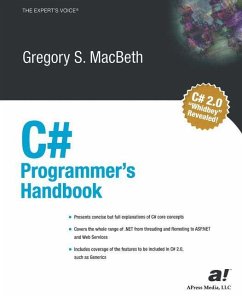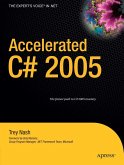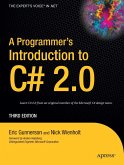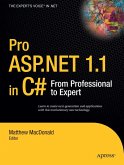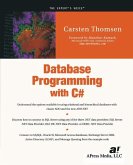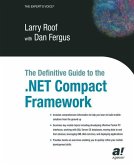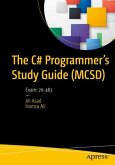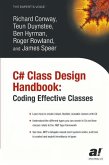* Only book to include complete coverage of the Whidbey features of C# (C# 2.0).
* Material explains and demonstrates the use of concepts in a gradual fashion.
* Streamlined samples do not contain extraneous material that distract the reader.
* Sample code presented is based upon common tasks (i.e. connecting to a database, creating a singleton remote object, etc.) instead of objects, classes, methods and properties like the presentation in MSDN or other books.
* A visual approach to learning C# with callouts explaining concepts
* A quick reference that could be used to help pass the MCSD.NET exams
This book provides in-depth examination of the C# language as used in .NET development for both .NET 1.1 and 2.0. Developers migrating to C# will find this a quick and easy-to-use reference, and new programmers will take home deeper understanding of the concepts needed to apply C# to real-world programming needs. This is the type of book you'll never want to be without, providing essential guidance to using C# for accomplishing real-world tasks in technologies including COM Interop, I/O, Directory Services, ADO.NET, networking, threading, debugging, Remoting, Web Services, and ASP.NET.
This book also covers features new to C# 2.0, such as Generics, Anonymous Methods, Iterators, and new methods of exising Framework classes. Becoming familiar with these concepts will be an advantage to any C# developer making the leap from 1.1 to 2.0.
* Material explains and demonstrates the use of concepts in a gradual fashion.
* Streamlined samples do not contain extraneous material that distract the reader.
* Sample code presented is based upon common tasks (i.e. connecting to a database, creating a singleton remote object, etc.) instead of objects, classes, methods and properties like the presentation in MSDN or other books.
* A visual approach to learning C# with callouts explaining concepts
* A quick reference that could be used to help pass the MCSD.NET exams
This book provides in-depth examination of the C# language as used in .NET development for both .NET 1.1 and 2.0. Developers migrating to C# will find this a quick and easy-to-use reference, and new programmers will take home deeper understanding of the concepts needed to apply C# to real-world programming needs. This is the type of book you'll never want to be without, providing essential guidance to using C# for accomplishing real-world tasks in technologies including COM Interop, I/O, Directory Services, ADO.NET, networking, threading, debugging, Remoting, Web Services, and ASP.NET.
This book also covers features new to C# 2.0, such as Generics, Anonymous Methods, Iterators, and new methods of exising Framework classes. Becoming familiar with these concepts will be an advantage to any C# developer making the leap from 1.1 to 2.0.

